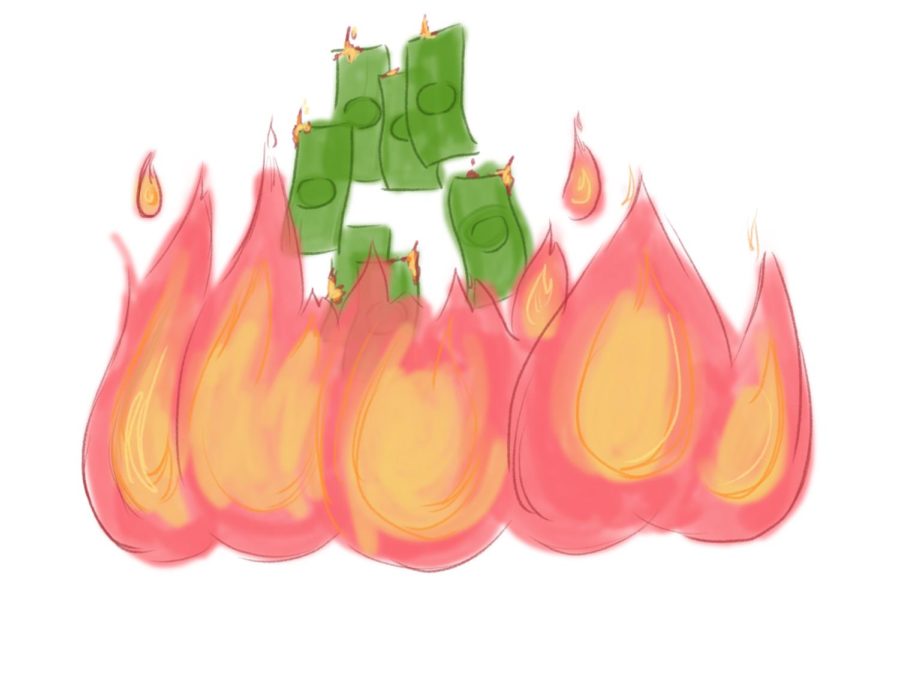Russian oligarchs serve Putin’s own interests and agenda
The sanctions placed on Russia by many western countries have damaged Russia’s economic strength and position on the world stage.
June 4, 2022
Oligarchy: a small group of people having control of a country, organization, or institution. For Russian society, this definition stands only partly true.
In Russia, the oligarchs control the country’s largest industries like steel and oil, amassing billion-dollar fortunes and forging economic connections even with western partners. But the image of a powerful and ruling oligarchy is flawed; while Western media often envisions wealthy oligarchs as Putin’s closest allies, whispering into his ear during meetings behind closed doors, they wield no real political influence. It does hold true that they are given positions of control over economic industries, but their wealth, and hence their power, derives directly from the State.
Many countries, to show their opposition without being in direct conflict, placed sanctions on Russia’s wealthiest men in the hopes that their immense authority could persuade Putin to pull out of his recent invasion of Ukraine. “What they’re doing over there is they’re killing civilians indiscriminately. They bomb cities, schools, and kindergartens, hospitals, which is criminal. It’s indefensible,” said Alex Pemov, born in Moldova, a country formerly part of the Soviet Union.
However, it will take a force more intense than sanctions to push these oligarchs to speak out against Putin’s actions when their billion-dollar fortunes–and lives–ride on his partnership. Their loyalty is not based on just fear, but on dependence. “The oligarchs do not control Putin, which is part of why he is so popular with the Russian people,” said Greg Anderson, who after graduating from Harvard in 1988 moved to Russia to work closely in the Russian oil business running through Ukraine.
“My job in Russia as a partner in a Swiss trading firm was to schmooze oil refinery directors to buy and ship oil products and petrochemicals for export,” Anderson said. Having met the infamous oligarch Roman Abramovich, owner of the Chelsea soccer team and the largest yacht in the world, he has firsthand seen the wealth of the Russian oligarchy, and the corruption that comes with it.
In the chaotic and corrupt decade following the fall of the Soviet Union, the politically influential each snagged pieces of Russia’s largest and state-controlled industries, such as oil refineries and metal-making plants, but often with government-backed loans. “When the Soviet Union collapsed, everything was nationalized…A few people became rich very quickly; basically overnight they became billionaires,” Pemov said.
Now, these oligarchs have amassed such great wealth that to protect it, they have found ways to store it in other European countries in the form of real estate, British football teams, and super-sized yachts. “The question is, are the oligarchs unethical…The question answers itself,” Anderson said.
To recall a particularly infamous case of a fallen Russian oligarch, Boris Berezovsky, the consequences of crossing Putin’s regime are stark and merciless. From owning the country’s main television channel to facing charges of fraud and embezzlement by the Russian State, he served as an example to all oligarchs: cross Putin, and you lose everything. “He’s not on the Forbes list, but I’m sure he’s richer than the richest oligarch because he’s the one who controls them all. … He’s the king,” Pemov said.
The invasion of Ukraine is an onion of complicated layers. The ineffectiveness of sanctions has previously been seen when they were similarly used during the annexation of Crimea in 2014, enabling Western countries to condemn Russia’s actions with a simple slap on the wrist. Yet, they did not condemn Putin more than that due to their own financial and political interests.
“A lot of people in Europe really enjoyed the relationship with an oil-rich, gas-rich country and a lot of people were making lucrative deals with Russia and Putin’s regime,” said Pemov. “The idea is to deprive Russia of money, and also put psychological pressure on his immediate circle and on ordinary people to initiate some internal dissent and internal pressure. And that’s what will put him to a negotiation table.” The impact now is a lot greater; not necessarily financially but psychologically.
On their own, sanctions cannot stop this war of conquest. However, hopefully, combined with the isolation of Russia by the West, Europe, private sectors and even the Russian people themselves, Putin will be pushed back. Already, Russia’s people are suffering and Putin is losing support. His speeches are becoming angrier, calling out traitors for not supporting his war while his troops are deserting and sabotaging their vehicles. The truth is that the driving force behind the invasion is Putin’s greed and not the Russian people, whose heart is not in this war.


